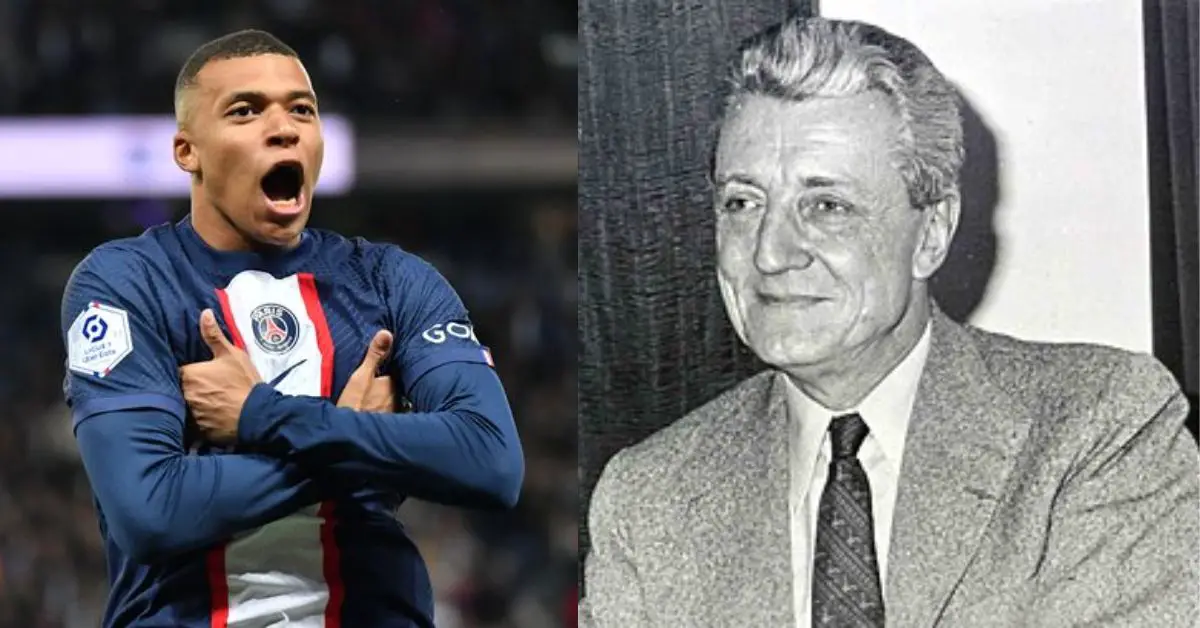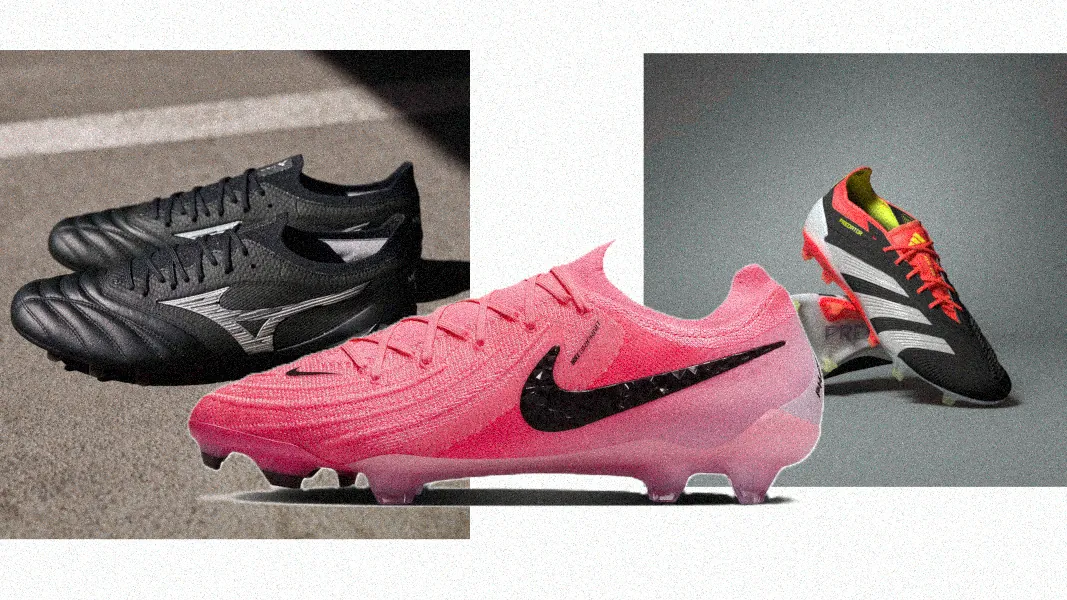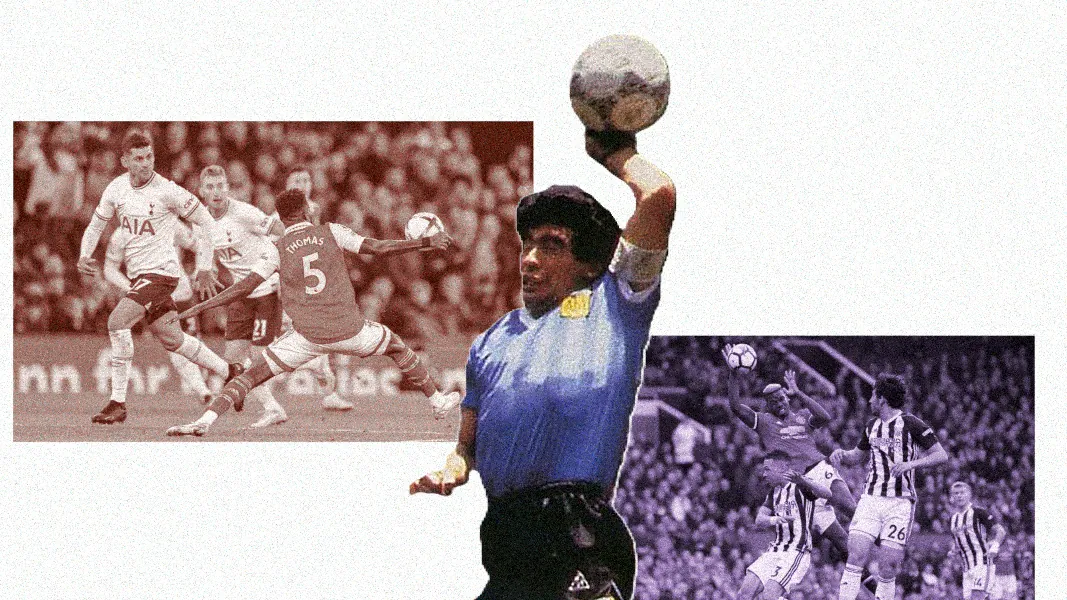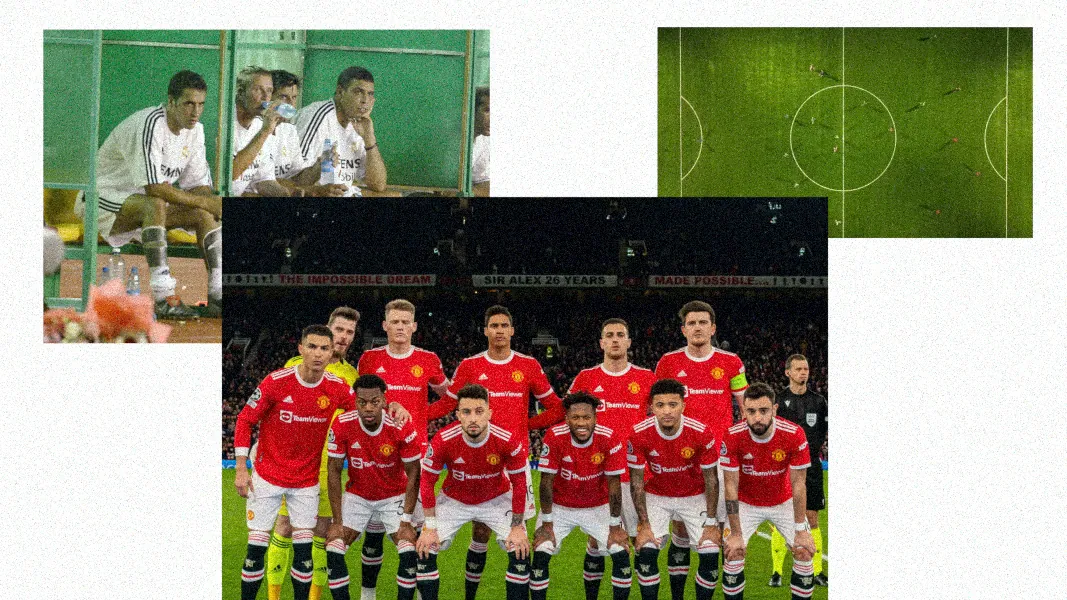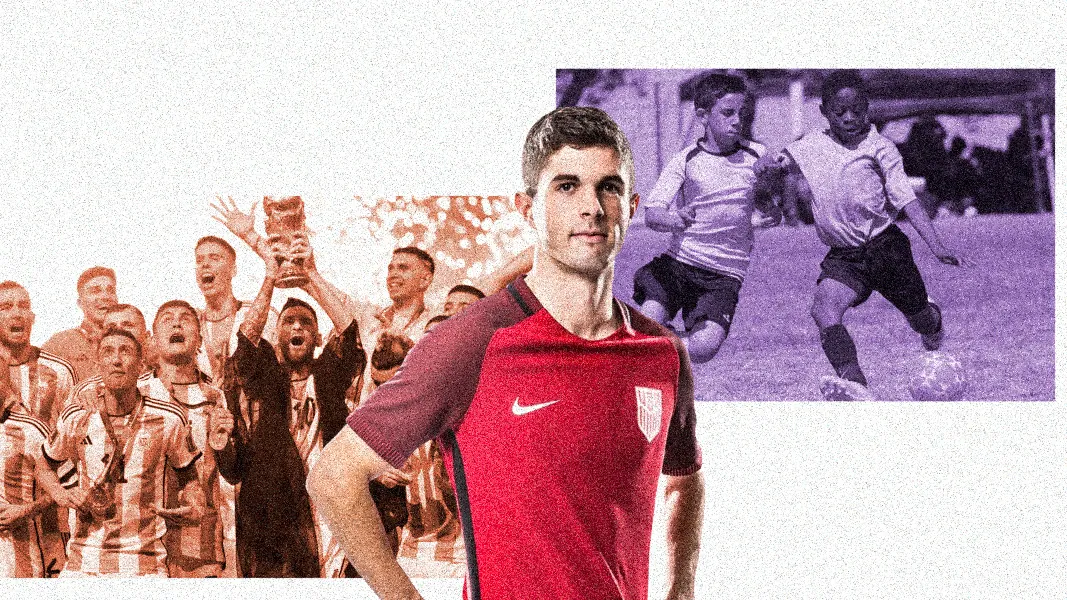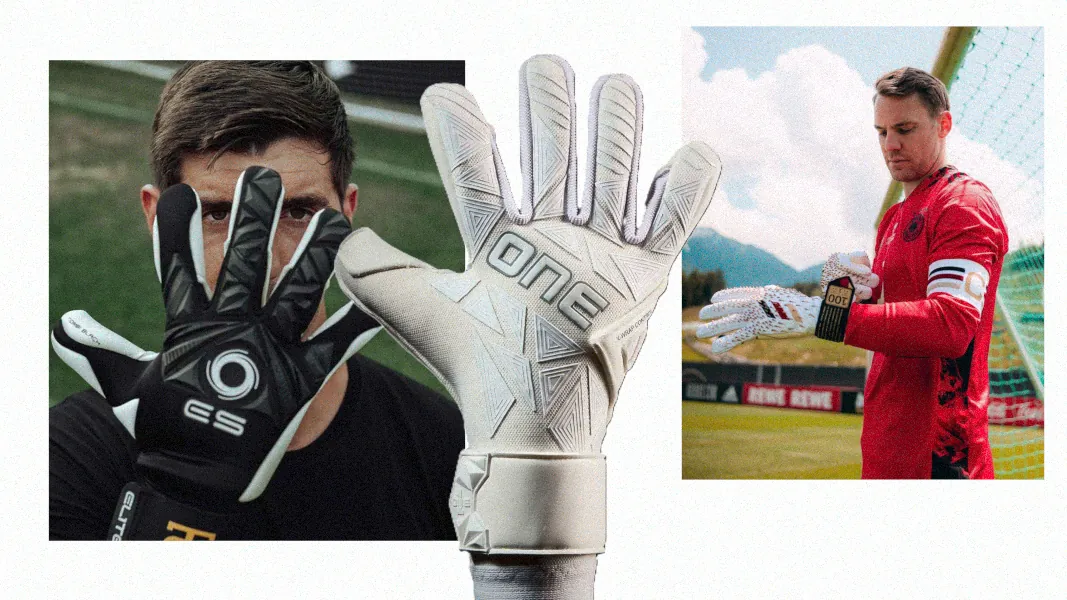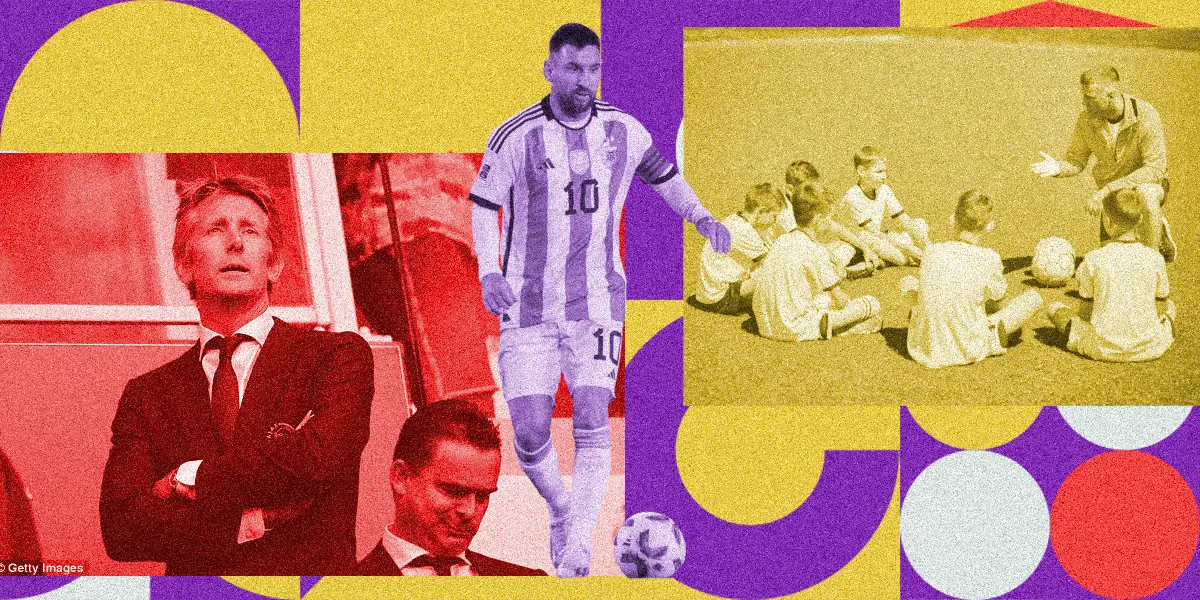As a new soccer fan, If you’ve ever found yourself wondering, “What does PSG mean in soccer?” you’re not alone.
PSG stands for Paris Saint-Germain, and it’s much more than just an acronym. This renowned soccer club is from the heart of Paris, France. They play in the French league, Ligue 1 and has been the most French successful club in the 21st Century.
In this article, we’ll present you the club profile from its history, home ground, club kits to its owners, brand deals, and Club Records.
PSG: Paris Saint-Germain Soccer Club
PSG stands for “Paris Saint-Germain” a powerhouse in French and European soccer. The club was founded on August 12, 1970, following the merger of Paris FC and Stade Saint-Germain, and in its short history of just over 50 years won over 40 trophies, including an impressive tally of 11 league titles.
The club started in the lower divisions of the French league system and announced itself by winning the second division of French soccer (Ligue 2) in 1970-71. PSG made major strides in the 1980s with winning the first division (Ligue 1) in 1985-86 and two French Cup titles (Coup de France).
The major transformation came in 2011 when Qatar Sports Investments (QSI) took over the ownership of the club. Since then the investment group has spent more than $1.5 Billion on the club to make it a household name in France and a powerhouse in Europe.
Nicknames
Beyond its official name, Paris Saint-Germain goes by a variety of two nicknames that reflect its identity and popularity in the soccer world.
Les Parisiens (The Parisians)
This nickname embodies the strong connection between PSG and its home city, Paris. It highlights the club’s deep-rooted ties to the vibrant culture and spirit of the French capital.
Les Rouge-et-Bleu (The Red-and-Blues)
PSG’s team colors, red and blue, are encapsulated in this nickname. It’s a nod to the striking colors that adorn the team’s jerseys and symbolize their unity and determination on the field.
Home Ground: Parc des Princes
The beating heart of Paris Saint-Germain’s legacy lies within the iconic Parc des Princes stadium. Situated in the heart of Paris, this historic venue has witnessed countless thrilling matches & emotional victories.
With a capacity of almost 48,000, the stadium provides an electric atmosphere that resonates with the passion of fans and the determination of players.
Prior to its inauguration in 1998 of the Stade de France, this venue served as the home stadium for both the French national soccer team and the national rugby union team.
Kit Colors and Crest
The visual identity of Paris Saint-Germain is instantly recognizable, thanks to its distinctive kit colors and emblematic crest.
Kit Colors: Red, Blue, and White
PSG’s home kit colors are a powerful representation of the club’s identity. The blend of deep blue and bold red, adorned with touches of white, creates a striking and memorable visual.
The Crest: Eiffel Tower and Fleur-de-Lis
At the heart of PSG’s crest are two iconic symbols that resonate deeply with Parisian heritage:
- Eiffel Tower: The instantly recognizable Eiffel Tower, an iconic landmark of Paris, takes a prominent place in the crest. It symbolizes not only the city’s identity but also PSG’s role as a representative of Paris on the global stage of soccer.
- Fleur-de-Lis: The fleur-de-lis, a stylized lily flower, is a traditional emblem that carries historical significance in French culture. Its presence on the crest reinforces PSG’s connection to its homeland and its commitment to upholding Parisian traditions.
Major Rivalry: Le Classique
Rivalries add an extra layer of intensity to matches, and few are as storied and fierce as the one between Paris Saint-Germain (PSG) and Olympique de Marseille (OM). This riveting clash, famously known as “Le Classique,” is more than just a soccer match.
The rivalry between PSG and Marseille traces back decades, with historical, cultural, and regional factors playing pivotal roles. These two clubs represent France’s two largest cities, Paris and Marseille. Each club has its own distinct identity and fervent fanbase. These two clubs are one of the most successful clubs in French soccer with 20 League titles among them.
The rivalry took a serious turn in 1986, marked by PSG securing their inaugural championship victory and Bernard Tapie’s acquisition of OM. As the 1980s drew to a close, PSG found themselves in contention for the 1988-89 title, competing directly against Tapie’s Marseille.
Further fueling this intensifying rivalry were the allegations made by PSG’s president, Francis Borelli, accusing Tapie and OM of match-fixing during that specific season.
Qatari Takeover: Shaping PSG’s Future
One of the pivotal moments in Paris Saint-Germain’s history came with the Qatari takeover, a transformative event that not only redefined the club’s financial standing but also propelled it onto the global stage as a soccer powerhouse.
The Qatari ownership, led by Qatar Sports Investments (QSI), injected new life into PSG, ushering in an era of unprecedented success and international recognition.
The Qatari Deal
In 2011, Qatar Sports Investments (QSI) took the reins of Paris Saint-Germain (PSG) with a 70% stake purchase. Led by Sheikh Tamim Bin Hamad Al Thani, the son of the Emir and heir to Qatar’s throne.
The acquisition marked the beginning of a new era for the club. Swiftly, former Inter Milan coach Leonardo was appointed as the Director of Football, setting the stage for PSG’s ambitious journey.
The trajectory of change continued in 2012 when QSI completed its takeover by securing the remaining 30% share from Colony Capital. This move solidified QSI’s influence and its commitment to shaping PSG’s future.
With QSI’s unwavering support, PSG’s financial prowess came into full view. The transfer market became a playground for the club, which made strategic marquee signings.
Billion Dollar Investement
Since then the investment group has spent more than $1.5 Billion on the club for the acquisitions of world-class players.
These acquisitions not only bolstered the team’s on-field performance but also drew global attention, elevating PSG’s profile on the international stage. The arrivals of Kylian Mbappe, Neymar Jr., Zlatan Ibrahimovic, and Lionel Messi showcased PSG’s evolution into a magnet for soccer superstars.
Unquestionably, the Qatari takeover stamped PSG’s dominance on French soil, clinching nine (9) more Ligue 1 titles and a staggering 21 domestic Cup trophies. Yet, the club’s ambitions stretched far beyond national boundaries.
Guided by newfound financial muscle, PSG left an indelible mark on prestigious European competitions like the UEFA Champions League. A shining example came in the 2019/20 season, where they clinched the runner-up spot, affirming their elite status on the continental stage.
However, the impact of Qatari ownership extended beyond the soccer pitch. Cultural exchange and global partnerships flourished as PSG collaborated with Qatari organizations. In this endeavor, the club became a cultural ambassador, fostering meaningful connections between Paris and Qatar.
While Qatar’s takeover brought a wave of unprecedented success, it wasn’t devoid of criticism. The infusion of vast financial resources triggered concerns about competitive balance within soccer.
The debate around financial fair play and the potential distortion of the transfer market gained traction as PSG’s spending drew both admiration and scrutiny. This complex landscape added another layer to the narrative of PSG’s transformation under QSI’s stewardship.
Famous and Iconic Players: Legends of PSG
Paris Saint-Germain’s journey to excellence is not only defined by its victories and achievements but also by the legendary players who have graced the club’s colors.
Over the years, PSG has been home to a plethora of iconic talents who have left an indelible mark in their history.
| Player | Contribution and Impact |
|---|---|
| George Weah | Celebrated as an early iconic player, Weah’s time at PSG in the early 1990s set the stage for future successes. His skills, pace, and goals paved the way for international aspirations. He won the French title in 1993/94 with PSG. |
| Ronaldinho | The Brazilian magician’s arrival in 2001 marked a turning point. His dazzling dribbling and brilliance elevated PSG’s profile, setting the stage for the club’s rise. |
| Zlatan Ibrahimović | From 2012 to 2016, Ibrahimović’s larger-than-life personality and prolific goals made him a legend. His impact inspired both current and future PSG stars. Ibrahimović scored 156 Goals and 61 Assists in 180 matches for PSG. |
| Thiago Silva | Leading with composure and defensive prowess, Silva captained PSG through domestic dominance. He became a symbol of resilience, earning fans’ respect and admiration. |
| Kylian Mbappé | Mbappé’s meteoric rise showcased his pace, dribbling, and goal-scoring ability. He represents PSG’s youthful dynamism and ambition to conquer domestic and international stages. Mbappe is the leading goalscorer of all time for PSG with 215 Goals. |
Biggest Brand Collaborations of PSG
Paris Saint-Germain’s influence extends far beyond the soccer field. A significant aspect of the club’s modern journey involves strategic collaborations with global brands, a partnership that has not only enhanced PSG’s image but has also contributed to the broader world of sports, fashion, and culture.
Jordan Brand x PSG (2018/19 – onwards)
The partnership between Jordan Brand and Paris Saint-Germain stands out as one of the most enduring and successful collaborations in soccer. Since its inception in 2018, this partnership has not only enabled Jordan to make its mark in the soccer world but has also provided PSG with access to the rich fashion and streetwear legacy of Jordan Brand.
This evolution is exemplified by the integration of Jordan Brand aesthetics into PSG’s primary kit for the 2021/22 season. Departing from the traditional Hechter stripe, this kit introduced subtle red and white accents against a dark blue backdrop. The ongoing success of this collaboration is underscored by the introduction of a grey-away shirt for the current season, reaffirming the enduring vitality of the Jordan x PSG partnership.
BAPE x PSG (2018)
In 2018, PSG collaborated with the Streetwear Fashion brand BAPE for an all-star line-up that resulted in a striking lifestyle collection dedicated to fans of BAPE and PSG.
The capsule features 13 pieces, including three items exclusively available for supporters from the capital.
Hublot x PSG
Back in 2015, PSG joined forces with Hublot to unveil their latest watch creation on a global stage. This exclusive timepiece, known as the Big Bang Unico Bi-Retrograde Paris Saint-Germain, takes on the mantle of being the official watch of the team. Limited to a mere 100 units, this watch is a testament to the collaboration’s exclusivity.
Marking Hublot’s second venture with the French team, this timepiece boasts a 45.5mm titanium case and features the emblem of Paris Saint-Germain on the sapphire crystal caseback.
Hugo Boss x PSG
Starting from 2014, BOSS has held the prestigious position of being Paris Saint-Germain’s official tailor. This collaboration has resulted in the creation of both formal and casual attire for players and staff alike. The values shared by BOSS and Paris Saint-Germain encompass confidence, performance, and unwavering consistency.
Paris Saint-Germain holds a unique distinction as the only club to have never faced relegation from Ligue 1. Furthermore, it stands as one of merely two French teams to clinch a major European title.
BOSS takes immense pride in contributing to the team’s accomplishments by providing meticulously tailored formal and casual ensembles. This partnership underscores the shared commitment to excellence and is a testament to the team’s enduring success story.
FAQ Section
PSG stands for Paris Saint-Germain, a professional soccer club based in Paris, France.
PSG was founded on August 12, 1970, and in its short history of just over 50 years won over 40 trophies, including an impressive tally of 11 league titles.
PSG has won 11 league titles as of 2022/23 season.
The instantly recognizable Eiffel Tower, an iconic landmark of Paris, takes a prominent place in the crest. It symbolizes not only the city’s identity but also PSG’s role as a representative of Paris on the global stage of soccer.
Paris Saint-Germain (PSG) and Olympique de Marseille (OM) matches are named Le Classique, (The Classic in French), these two clubs are among the most successful clubs in France.
The Qatari takeover in 2011 stamped PSG’s dominance on French soil, clinching nine (9) Ligue 1 titles and a staggering 21 domestic Cup trophies. Yet, the club’s ambitions stretched far beyond national boundaries.
Some of the famous players to play for PSG are George Weah, Ronaldinho, Zlatan Ibrahimović, Thiago Motta, Neymar Jr., Lionel Messi, and Kylian Mbappe.
PSG was founded on August 12, 1970, following the merger of Paris FC and Stade Saint-Germain, leading to the name, Paris Saint-Germain.
The Boulogne Boys, Supras Auteuil, and the Collectif Ultras Paris (CUP) stand out as the most renowned supporters’ collectives associated with the club.
